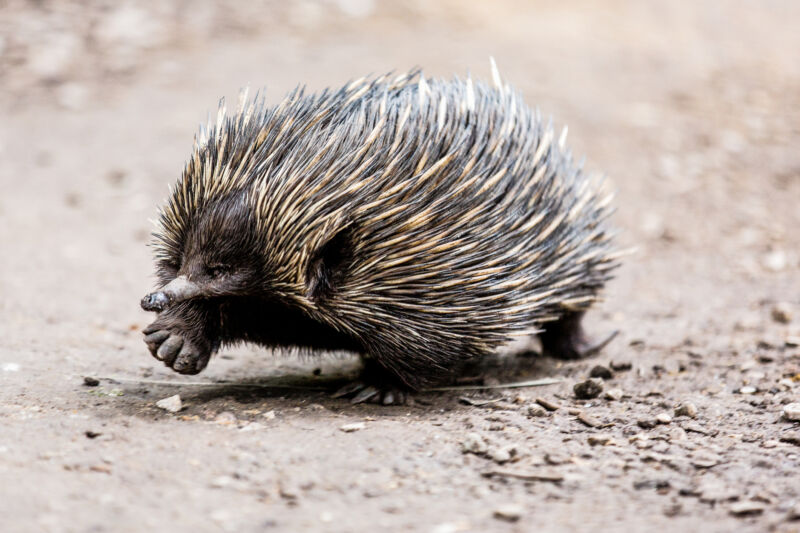Bizarre egg-laying mammals once ruled Australia—then lost their teeth

Enlarge / The echidna, an egg-laying mammal, doesn't develop teeth. (credit: Yvonne Van der Horst)
Outliers among mammals, monotremes lay eggs instead of giving birth to live young. Only two types of monotremes, the platypus and echidna, still exist, but more monotreme species were around about 100 million years ago. Some of them might possibly be even weirder than their descendants.
Monotreme fossils found in refuse from the opal mines of Lightning Ridge, Australia, have now revealed the opalized jawbones of three previously unknown species that lived during the Cenomanian age of the early Cretaceous. Unlike modern monotremes, these species had teeth. They also include a creature that appears to have been a mashup of a platypus and echidna-an echidnapus."
Fossil fragments of three known species from the same era were also found, meaning that at least six monotreme species coexisted in what is now Lightning Ridge. According to the researchers who unearthed these new species, the creatures may have once been as common in Australia as marsupials are today.